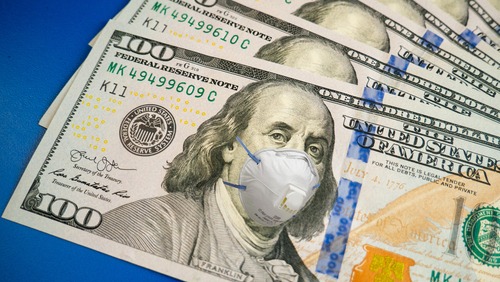
In a letter to U.S. Attorney General Merrick Garland this week, U.S. Rep. Brad Wenstrup (R-OH), chairman of the House Select Subcommittee on the Coronavirus Pandemic, derided COVID-19 programs as rife with waste, fraud, and abuse – and demanded to know how $280 billion of it was taken by criminals.
As of January 2023, the Government Accountability Office reported that the United States had spent approximately $4.6 trillion on COVID-19 related aid programs. Citing details from the Federal Reserve, Wenstrup accused such spending of inciting inflation and causing unprecedented governmental expansion, before coming to his main point: news reports that around $280 billion has gone missing due to criminals either in or outside the country.
“Some of these fraudulent actors were based outside the United States and may involve international criminal organizations,” Wenstrup wrote. “Estimates imply that at least half of all stolen COVID-19 relief funds went to Russian, Chinese, and Nigerian criminals. In August 2021, a senior Federal Bureau of Investigation (FBI) official and member of the Department’s COVID Fraud Task Force said, “[i]t’s definitely an economic attack on the United States…Tens of billions of dollars will be missing…It’s a significant amount of money that goes overseas.” In December 2022, the U.S. Secret Service (USSS) stated a group of hackers linked to the Chinese Communist Party stole at least $20 million in relief funds by hacking government computer networks in at least six states.”
Some action has consequently been pursued. As of March 2022, the DOJ started criminal and civil enforcement actions over some $8 billion in pandemic relief fraud, though Wenstrup noted that it was unclear if that was only for domestic fraud, or if it went further. If organized criminal rings from abroad were involved, he demanded to know.
While requesting a staff briefing to the committee, he asked for documents and communications related to the DOJ’s investigations of international COVID-19 relief fraud. This, Wenstrup added, would improve federal responses during future pandemics, provide answers for the public regarding where taxpayer dollars went, and grant insight into the lack of oversight that led to the situation.

